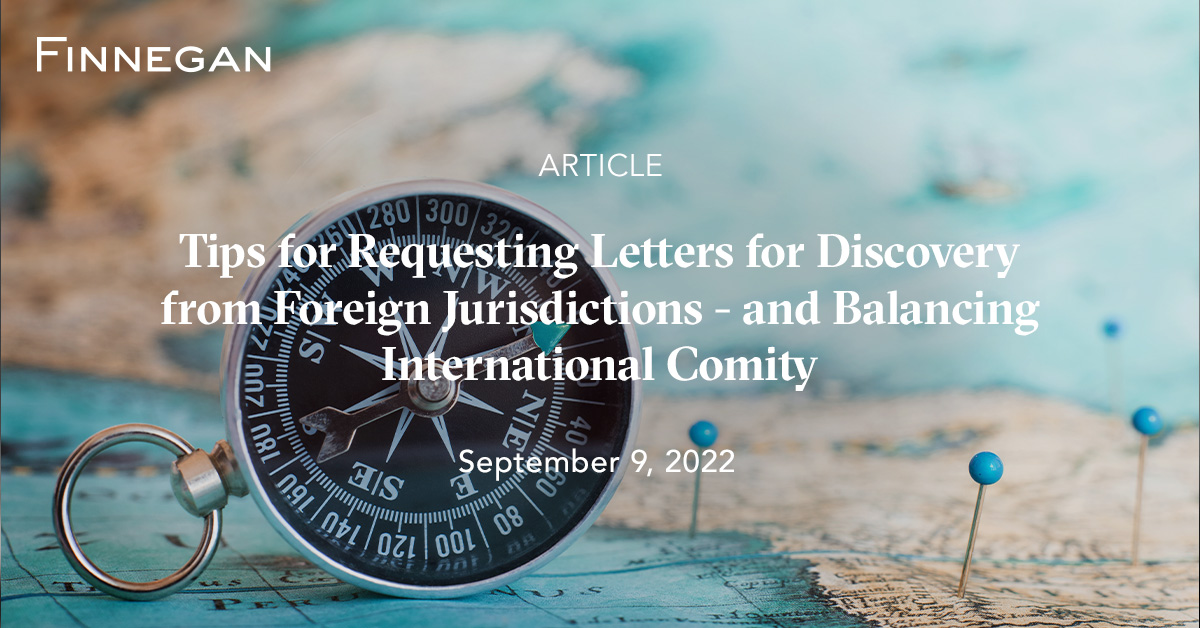How to Effectively Use Letters Rogatory in Cross-Border Legal Cases
How to Effectively Use Letters Rogatory in Cross-Border Legal Cases
Blog Article
Letters Rogatory Explained: Facilitating Legal Cooperation Between Countries

Definition of Letters Rogatory
Letters rogatory are official demands made by a court in one territory to a court in another territory, looking for support in getting evidence or testament for a legal case. This procedural system is vital in the context of international legislation, where lawful systems may vary, and cross-border teamwork is necessary. Letters rogatory promote the gathering of info that might be important for settling instances, especially in instances including intricate multinational issues.
Usually, these demands emerge in civil, criminal, or administrative matters where an event requires evidence that is located outside the jurisdiction of the requesting court. The letters serve as a way to make sure that the concepts of due procedure are maintained, making it possible for courts to accessibility evidence that might otherwise stay hard to reach due to geographic or legal barriers.
Using letters rogatory is controlled by international treaties, reciprocal contracts, or domestic laws, which define the procedures and responsibilities of the courts entailed. It is very important to keep in mind that the execution of such requests is not guaranteed; they depend on the laws and practices of the jurisdiction receiving the letter. Hence, letters rogatory are a pivotal tool for cultivating lawful collaboration and making certain justice throughout boundaries.
The Process of Issuing Letters Rogatory
Issuing letters rogatory involves an organized procedure that ensures compliance with both residential and worldwide lawful standards. The requesting party, generally a court or legal authority, composes an official demand outlining the nature of the help sought, the proof or info needed, and the legal basis for the request. This paper should be specific to help with understanding by the international jurisdiction.

The next step involves sending the letters rogatory to the marked international authority. This is often done through polite networks or worldwide legal support frameworks, ensuring that the demand is obtained and acknowledged by the foreign court. The international court after that processes the request according to its very own lawful treatments, inevitably responding to the asking for celebration with the popular details or evidence, hence facilitating global lawful teamwork.
Value in International Law
The significance of letters rogatory in global legislation can not be overstated, as they function as a crucial device for judicial teamwork across boundaries. These formal ask for aid in legal matters permit courts in one jurisdiction to look for info, evidence, or the visibility of witnesses from an additional jurisdiction, thus facilitating the management of justice in global instances.
Letters rogatory are especially important in the context of globalization, where lawful disputes usually cover multiple countries. They enable the collection of evidence that could otherwise be hard to reach, making certain that legal proceedings are notified and fair. By cultivating collaboration in between judicial systems, letters rogatory aid copyright the regulation of law and advertise shared respect among countries.
Moreover, the use of letters rogatory shows a commitment to worldwide standards and principles of participation, showing the interconnected nature of modern lawful techniques. It shows the importance of adhering to recognized treatments and treaties, such as the Hague Convention, which gives a framework for these requests - Letters get more rogatory. Inevitably, letters rogatory boost the efficiency of lawful procedures, making sure that justice is not prevented by geographical borders
Difficulties and Limitations
Regardless of their relevance, letters rogatory face several challenges and restrictions that can hamper their performance. One key issue is the varying legal frameworks and treatments throughout territories, which can lead to misunderstandings and hold-ups in the implementation of demands. Various countries may have distinct demands for the credibility of letters rogatory, complicating the procedure better.
Additionally, the frequently drawn-out nature of global legal teamwork can hinder timely accessibility to proof or witnesses. This delay might detrimentally influence legal procedures or continuous examinations, particularly in situations calling for immediate action. Additionally, the lack of resources and training in some jurisdictions can result in not enough handling of demands, bring about insufficient or insufficient feedbacks.
Cultural differences and differing mindsets towards lawful procedures can also posture significant obstacles. Nations with less official lawful systems may battle to conform with the step-by-step rigor expected in letters rogatory. Political tensions in between nations can affect the determination to implement requests, resulting in an absence of collaboration and diminishing the utility of this mechanism in global legislation. These challenges require continual dialogue and reform to boost the efficacy of letters rogatory in lawful cooperation.
Study and Instances

On the other hand, obstacles can emerge, as seen in an instance involving a European country seeking proof in an ongoing criminal matter from a non-EU country - Letters rogatory. The process was delayed as a result of governmental difficulties and varying legal standards, inevitably preventing the investigation
These examples highlight that while letters rogatory can facilitate worldwide collaboration and accelerate lawful procedures, they also highlight the need for clear interaction and understanding of legal frameworks in between nations. Such situation studies underscore the significance of refining this device to improve efficiency and efficiency in international legal matters.
Verdict
In summary, letters rogatory offer as an important system for helping with legal cooperation in between countries, making certain the collection of evidence and testament throughout territories. Their relevance in global regulation can not be overemphasized, as they promote due procedure and improve the performance of cross-border legal proceedings.
Letters rogatory are official demands made check by a court in one territory to a court in one more territory, looking for aid useful reference in obtaining proof or statement for a legal proceeding. The requesting party, commonly a court or legal authority, prepares a formal demand detailing the nature of the aid looked for, the evidence or info required, and the legal basis for the demand. The foreign court after that processes the demand according to its own legal procedures, inevitably reacting to the requesting event with the popular info or evidence, hence facilitating international lawful cooperation.
Additionally, the use of letters rogatory shows a commitment to global norms and principles of collaboration, mirroring the interconnected nature of modern-day lawful techniques.Worldwide legal participation via letters rogatory is not without its real-world effects, as illustrated by numerous case researches that highlight both successes and obstacles.
Report this page